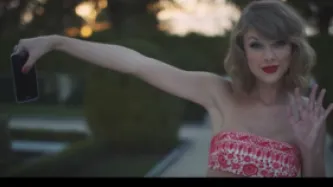Search
Content type: Examples
When Dallas police posted on Twitter asking for videos of the protests taking place after George Floyd's killing, a flood of videos and images of K-pop stars were uploaded to its anonymous iWatch Dallas tip-off app. Law enforcement can call on vast numbers of networked cameras - from cars, food and retail chains that are typically willing to share with police, law enforcement agencies' own networks of surveillance and body cameras as well as object and face recognition software, protesters and…
Content type: Examples
Following the January 6 invasion of the US Capitol Building, federal law enforcement used a wide variety of surveillance technologies to track down participants, including facial recognition, licence plate readers, policy body cameras, and cellphone tracking. While many of the people being tracked and charged are members of white supremacist groups, human rights organizations such as ACLU and EFF are concerned that the level of surveillance was excessive and poses a threat to peaceful protests…
Content type: Examples
Human rights activists and Democratic members of the US Congress wrote to top law enforcement officials in the Trump administration to demand they cease surveilling Americans engaging in peaceful protests. Trump and others in his administration called those protesting the killing of George Floyd "domestic terrorists" and "anarchists". Recent efforts to surveil Americans have included facial recognition, automated licence plate readers, and Stingrays, as well as spy planes and drones.
https://…
Content type: Examples
The controversial facial recognition company Clearview AI, which came to public attention for scraping billions of photos off social media sites to create a comprehensive facial recognition system, says it has offered to help US federal and three state agencies with contact tracing. The company claims its technology could use the cameras already in place to identify people in surveillance video in restaurants or stores where they may have come into contact with others who subsequently test…
Content type: Examples
As governments look into surveillance, geolocation and biometric facial recognition to contain the coronavirus, even if they violate user data privacy, the controversial facial recognition company Clearview AI is allegedly negotiating a partnership with state agencies to monitor infected people and the individuals with whom they have interacted. The data mining company Palantir is already collaborating with the CDC and NIH, while the White House convened a task force of technology companies to…
Content type: News & Analysis
Taylor Swift may be tracking you, particularly if you were at her Rose Bowl show in May.
According to an article published by Vanity Fair, at Swift’s concert at the California stadium, fans were drawn to a kiosk where they could watch rehearsal clips. At the same time – and without their knowledge - facial-recognition cameras were scanning them, and the scans were then reportedly sent to a “command post” in Nashville, where they were compared to photos of people who are known…
